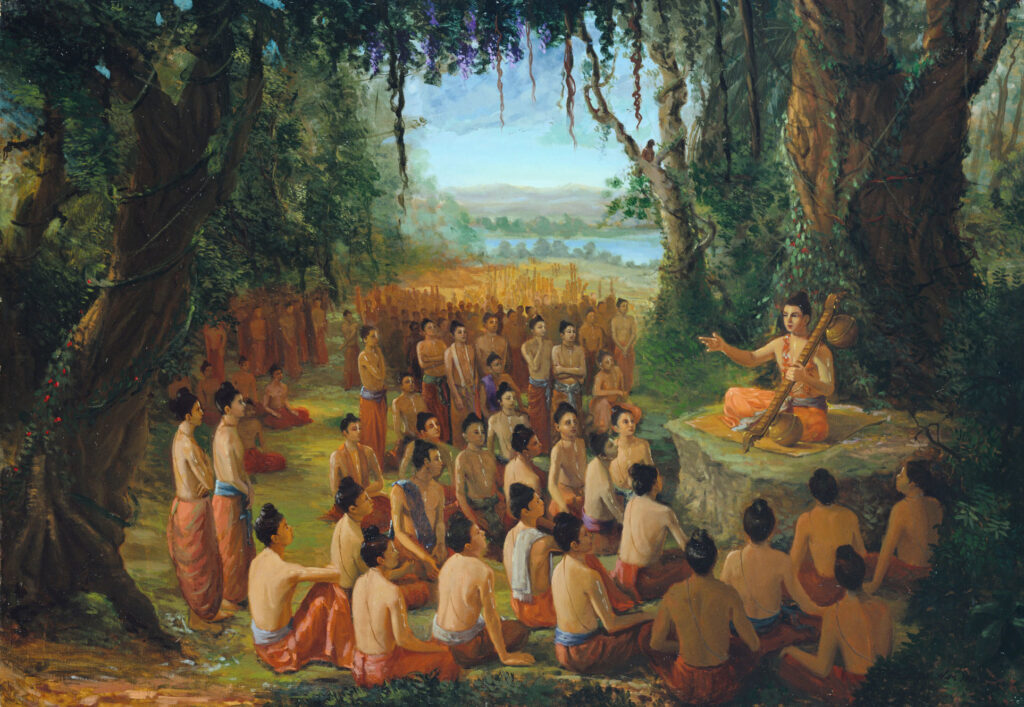In the Sri Isopanisad and other books, Srila Prabhupada explains that conditioned souls have four defects: imperfect senses and intelligence, a tendency to make mistakes, a tendency to be illusioned, and a tendency to cheat others. He mentions that even great historical personalities like Gandhi and Kennedy made mistakes and ended up losing their lives due to that, so what to say about others?
This of course opens our eyes to the risk of following imperfect political leaders and so-called avatars, but there is also another implication, which is our own capacity for obtaining true knowledge.

What we call reality is just the way our mind and intelligence interpret the input received from the senses, which is in turn just electrical signals coming to the brain. We obtain information using imperfect senses, such as our eyes and ears, and this imperfect information is processed using our imperfect intelligence, and then further transformed due to the workings of the mind. As a result, what we believe to be reality often has very little resemblance to what reality is. Many people people don’t believe in God or the soul, for example, just because they can’t see it. Many think that the Earth is flat, and so on.
Prabhupada explains that the only way to receive perfect knowledge is through the Vedic literature, which offers us perfect knowledge because it comes directly from Krsna. Perfect knowledge can’t be produced by any imperfect being from this universe, it has to be imported from the transcendental realm. This imported transcendental knowledge is then transmitted through the chain of disciplic succession and reaches us without suffering adulteration.
However, if our senses and intelligence are imperfect, how can we be sure we are properly understanding this transcendental knowledge, even when we receive it from a proper representative, through a book or a lecture, for example?
The fact is that even though a spiritual teacher can do his best to explain things to us in an understandable way, there is no guarantee that we, by ourselves, will be able to properly understand it. Someone wearing glasses with blue lenses will see everything blue, while someone with red lenses will see everything red. Similarly, people influenced by passion and ignorance will see everything through their limited perspectives. We can practically see that devotees often misunderstand what they hear, which causes lots of problems. How to solve that?
That’s where the spiritual master, be it a siksa or diksa guru, is supposed to come in. According to the Vedic conception, the spiritual master is not supposed to be just an ecclesiastical figure, but someone with whom we have direct contact. The spiritual master is supposed to observe the disciple and thus detect if he is understanding or not, and correct him when necessary. Only through this process, it’s possible to be sure that the disciple is properly understanding what he is hearing. It would typically take thousands of hours of such hard work for a spiritual teacher to train a disciple, it’s not just about chanting on his beads.
Of course, that’s difficult to practically implement in current times since our movement is going through a phase of accelerated growth, and even when we include all senior Vaishnavas from the different Gaudiya Maths and other organizations, the number is too small to properly guide all the millions of potential disciples and followers.
This however doesn’t change the fact that having the opportunity of directly associating with our spiritual master (not just hearing, but being corrected by him) can make a huge difference in our spiritual lives. Just like one can’t become a surgeon by just reading books and watching videos, one can’t become a self-realized soul by just reading books. The knowledge we are receiving from books and other passive sources has to be augmented by the input of a qualified spiritual teacher, be it the diksa or siksa-guru, or some other senior Vaishnava. We need to go through the process of asking questions and being corrected in our misconceptions. It’s up to us to try to find ways to obtain it.
